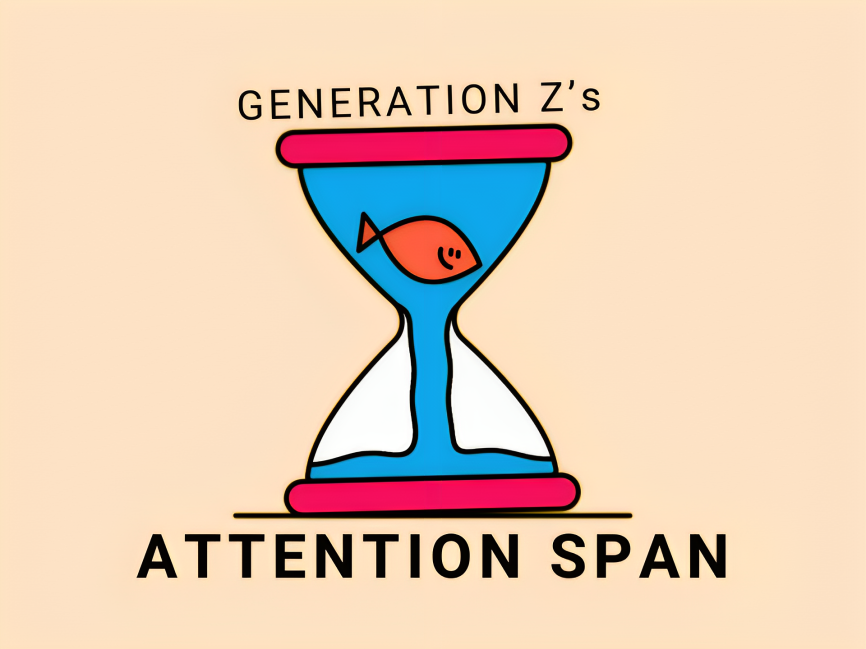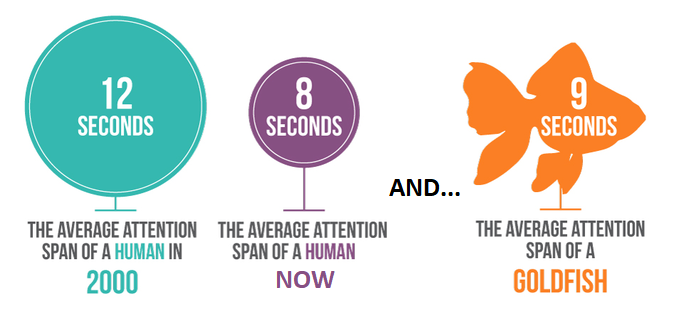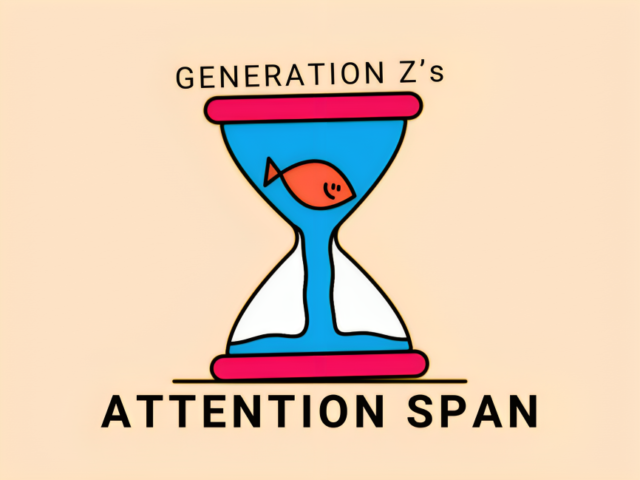
The way we receive and digest information has undergone a substantial change in recent years. The younger population has it incredibly easy to get knowledge in a flash due to the development of the internet, artificial intelligence, and social media platforms like TikTok. These factors play a role in contributing to the reduced attention span of the Generation Z. This development has advantages, but it also has drawbacks.
The Modern Struggle
People’s attention span, especially the one of Generation Z, is getting shorter and these people are becoming more satisfied with superficial understanding as a result of the fast-paced nature of the digital world. Generation Z consequently faces particular difficulties, such as being unable to focus for extended periods of time.
Attention Span Shrinkage

Image via Golden Steps ABA
Let’s start with the main problem, which is the decrease in attention spans. The average human attention span, according to a 2015 Microsoft study, has decreased from 12 seconds in 2000 to just 8 seconds at the time. That is less than that of a goldfish. Today, attention spans have probably been getting shorter due to the ongoing growth of smartphones and social media sites like TikTok, which offers 15-second videos.
As we get used to just ingesting information in little, manageable bits, we could find it difficult to focus on longer-period-of-time-required activities like reading extensive academic articles or writing well-researched papers.
Instant Gratification Crave

Image via Voices of Gen-Z
The growing need for rapid gratification is another effect of the digital age. In the world of Generation Z, finding the answers is as simple as asking an AI assistant or Google. The apparent need for more in-depth inquiry and analysis has decreased as a result of this emphasis on immediate results. Even if the first result in the suggestion bar is not the most accurate or comprehensive, we tend to just accept it and not look any further into it.
This way of thinking may result in a lack of intellectual interest and a desire to only skim the surface of a subject. Generation Z might be less likely to think about other viewpoints, which could hinder our capacity for critical thinking.
Knowledge Sham

Image via MIT Sloan
A false perception of knowledge may be created by Generation Z’s ready access to information. We think that we would know more if we could access solutions quickly. However, due to the overflowing information that exists on the internet, we tend to believe whatever pops up on our screen. Critical thinking is crucial these days, and this habit can be damaging in the near future.
All of this relates back to the way we divide our attention. We force our brains to switch information in such a short amount of time. Someway, somehow, our brains will adapt to the habit and eventually, adopt it into our daily routine. One day when we are trying to focus on one thing, we realize that it is harder than we anticipated.
The damage is irreversible, but with a lot of effort, there might be a chance for us to regain our focus. One of the ways is by embracing The Slow Life.










